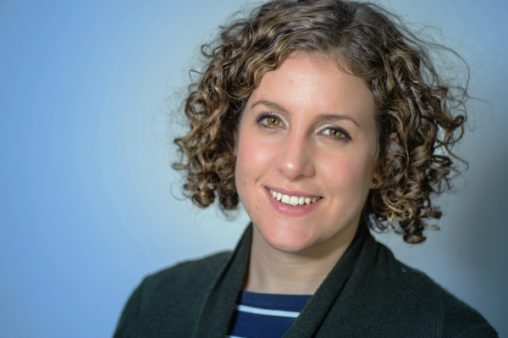Cerys Furlong (MSc 2005)
19 December 2015

Cerys Furlong is the Director for the NIACE Cymru.
I saw the MSc in Social Science Research Methods as providing a good foundation from which I would be able to pursue a number of paths – academic or non-academic. I decided not to pursue a PhD, instead taking up a contract working with the University of Oxford on a review of Initial Teacher training for Welsh Government.
I chose Cardiff University because it’s a high quality institution with an excellent reputation. My motivation for returning to Wales after completing my undergraduate degree in Bristol was driven by an interest in the new National Assembly and my academic interest in education policy in a devolved context.
From 2005 to 2011, I held various positions with the National Institute of Adult Continuing Education (NIACE) – working with senior researchers in Welsh Government and a range of education organisations. I left for a short period in 2012 to take up the post of Assistant Director for the Open University in Wales, where I was responsible for widening participation, employer engagement and partnerships, before re-joining NIACE in January 2014 to become the Director for Wales.
My MSc has been hugely beneficial to my career. In the early stages it gave me the confidence to undertake research, to write and to develop ideas. I believe that people often lack the confidence as researchers, fearing a lack of academic credibility holds them back. With a good foundation in research methods, I was confident to participate in academic discussion, to contribute to articles and papers, to present my analysis and views in a variety of ways.
I enjoy the variety and dynamism of working in the voluntary sector. My role as Director of NIACE Cymru involves researching and campaigning for the personal, social and economic benefits of lifelong learning. This includes overseeing projects that work with practitioners, other charities and government; analysing trends and identifying challenges and opportunities for the sector; briefing civil servants or politicians on aspects of policy affecting adults and representing NIACE on strategic groups.
- April 2024
- March 2024
- February 2024
- January 2024
- December 2023
- November 2023
- October 2023
- September 2023
- August 2023
- July 2023
- June 2023
- May 2023
- April 2023
- March 2023
- February 2023
- January 2023
- November 2022
- October 2022
- September 2022
- August 2022
- July 2022
- June 2022
- May 2022
- April 2022
- March 2022
- February 2022
- January 2022
- December 2021
- November 2021
- October 2021
- September 2021
- August 2021
- July 2021
- June 2021
- May 2021
- April 2021
- March 2021
- February 2021
- January 2021
- December 2020
- November 2020
- October 2020
- September 2020
- August 2020
- July 2020
- June 2020
- May 2020
- April 2020
- March 2020
- January 2020
- December 2019
- November 2019
- October 2019
- September 2019
- August 2019
- July 2019
- May 2019
- April 2019
- March 2019
- February 2019
- January 2019
- December 2018
- November 2018
- October 2018
- September 2018
- August 2018
- July 2018
- June 2018
- May 2018
- April 2018
- March 2018
- February 2018
- December 2017
- November 2017
- October 2017
- September 2017
- August 2017
- July 2017
- June 2017
- May 2017
- April 2017
- March 2017
- February 2017
- January 2017
- November 2016
- October 2016
- September 2016
- July 2016
- June 2016
- May 2016
- April 2016
- March 2016
- February 2016
- January 2016
- December 2015
- November 2015
- October 2015
- September 2015
- August 2015
- January 2015
- December 2014
- November 2014
- September 2014
- August 2014
- May 2014